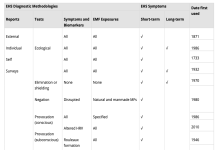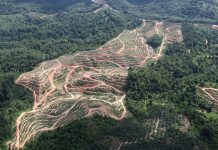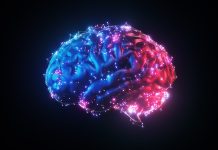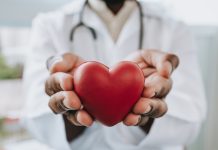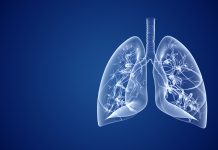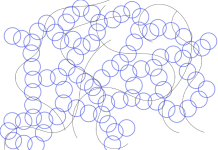Open Access Government produces compelling and informative news, publications, eBooks, and academic research articles for the public and private sector looking at health, diseases & conditions, workplace, research & innovation, digital transformation, government policy, environment, agriculture, energy, transport and more.
Home 2025
Archives
Diagnosing electromagnetic hypersensitivity (EHS)
Michael Bevington, the Chair of Trustees at Electrosensitivity UK, outlines the various symptoms and diagnostic methodologies related to Electromagnetic Hypersensitivity (EHS), a condition first diagnosed in 1871.
A comprehensive overview of the EU deforestation regulation
Dr Christopher Gilbert at Biena Consulting Srl offers a comprehensive overview of the EU Deforestation Regulation, which aims to reduce the European Union’s contribution to deforestation, thereby minimising greenhouse gas emissions and combating global biodiversity loss.
Democracy: From polarization to common ground
Jared Wesley, PhD, discusses how the Common Ground team at the University of Alberta helps individuals renew their commitment to decency and respect within democracies. This conversation addresses issues concerning political polarization and research on populism.
Predictive models for the food industry
Gry Carl Terrell from the Danish Meat Research Institute introduces a valuable tool to maximise shelf life and ensure food safety.
Biodiversity data and ongoing monitoring: Eyes on the ground and in the sky
Monitoring biodiversity loss is hindered by current data sources. The B-Cubed project, funded by Horizon Europe, aims to create harmonised, policy-ready indicators to support evidence-based decisions on biodiversity, climate, pollution, and land use, aiding the Green Deal objectives.
Addressing the challenges of dementia care
Individuals living with dementia and their care partners often face numerous challenges that can lead to feelings of isolation. This article outlines how the Jockey Club Centre for Positive Ageing’s crisis management hotline service has become a vital resource for supporting the wellbeing of those affected by dementia.
Quantum bits and neural interpretation of information
Dr Peter Verheyen, DMD from Sola Society & Academy, Vienna University, delves into the world of quantum bits and neural interpretation of information.
Coaches help to reduce heart failure re-admissions
Professor James Calvin from Western University’s Department of Medicine presents his important research comparing two innovative methods for supporting patients in managing heart failure.
The microbiome in early life: Setting the stage for optimal early life health in...
Researchers at the University of South Florida Microbiomes Institute are exploring exciting new areas in microbiome research; here, they discuss the essential role that the microbiome plays in early life health.
A soil health initiative for revegetation and orchards
Lynette Abbott from The University of Western Australia highlights an innovative soil health initiative for revegetation and orchards.
Breaking the grass ceiling: Gender inequality in agriculture
Professor Sally Shortall guides us through GRASS CEILING, which brings together 25 partners from across Europe to research gender inequality in agricultural and rural policies.
Using machine learning to predict the severity of salmonella infection
David Ussery, a Professor in the Department of BioMedical Informatics at UAMS, and his student, Aakash Bhattacharyya, discuss using Machine Learning methods to predict the pathogenicity of a bacterial infection based on genome sequencing.
Manufactured chemicals: A significant contributor to chronic childhood diseases
Pamela J. Lein from the University of California, Davis, discusses manufactured chemicals as a significant contributor to chronic childhood diseases.
Frontline innovations: Introducing the Black Sea battle lab
The Black Sea Battle Lab is a new initiative launched by the Ukrainian and Norwegian armed forces amid the ongoing conflict in Ukraine. Set to begin in July 2025, it aims to create a hub for innovation, leadership development, and policy engagement in maritime operations. Head of the Department of Tactics, Ukrainian Naval Forces Institute, Pavlo Rud, explains.
Cracking the code of active volcanoes
Through the Horizon 2020-funded IMPROVE project, European scientists are deploying cutting-edge tools to reveal the hidden dynamics of Earth’s most powerful forces.
Adapting effective sexual assault prevention for online delivery
Can an in-person intervention that decreases young women’s risk of sexual assault maintain its effectiveness when adapted for online facilitation? Our recent research set out to answer this question.
What does it mean to ‘know’ something in the age of AI?
Stephanie Schneider from SUNY Old Westbury examines how Artificial Intelligence is reshaping our understanding of knowledge and challenging traditional concepts as it becomes increasingly integrated into our daily lives.
Antibiotics in tuberculosis treatment: Impacts on the respiratory microbiome and the role of optimal...
The respiratory microbiome plays a crucial role in maintaining immune regulation. In this article, Dr Wilber Sabiiti emphasizes the need for optimized antibiotic dosing strategies to minimize harmful effects on the microbiome and improve treatment outcomes for patients with TB.
Rethinking silicone coatings: Using polymer architecture to eliminate VOCs
Ring polysiloxanes offer a promising route to VOC-free silicone coatings without compromising performance; Anne Ladegaard Skov and Cody Brian Gale from the Technical University of Denmark explain.
Depoliticisation as a silencer in lawmaking
In her thought-provoking commentary, Kati Rantala from the Faculty of Social Sciences delves into the concept of depoliticisation, exploring how it acts as a silencer in lawmaking. She examines the rhetoric surrounding inclusivity and participation in the normative basis for regulatory policy.

